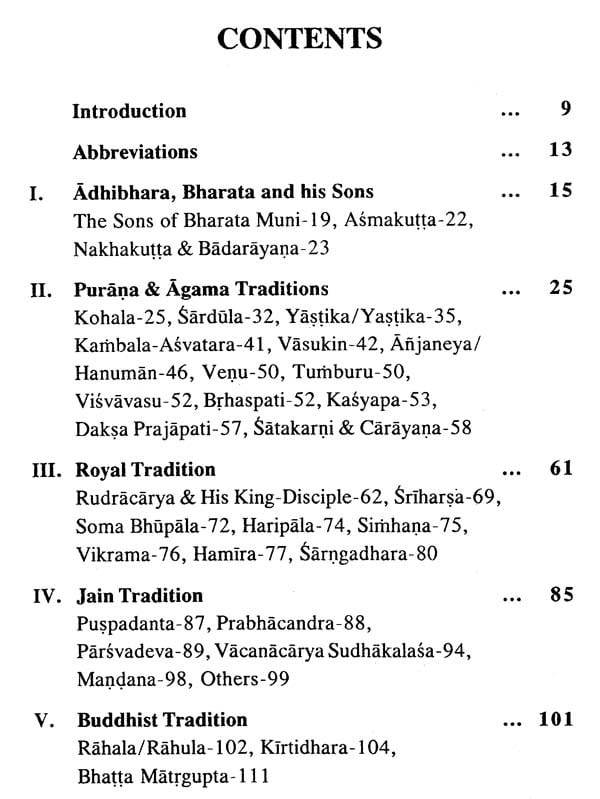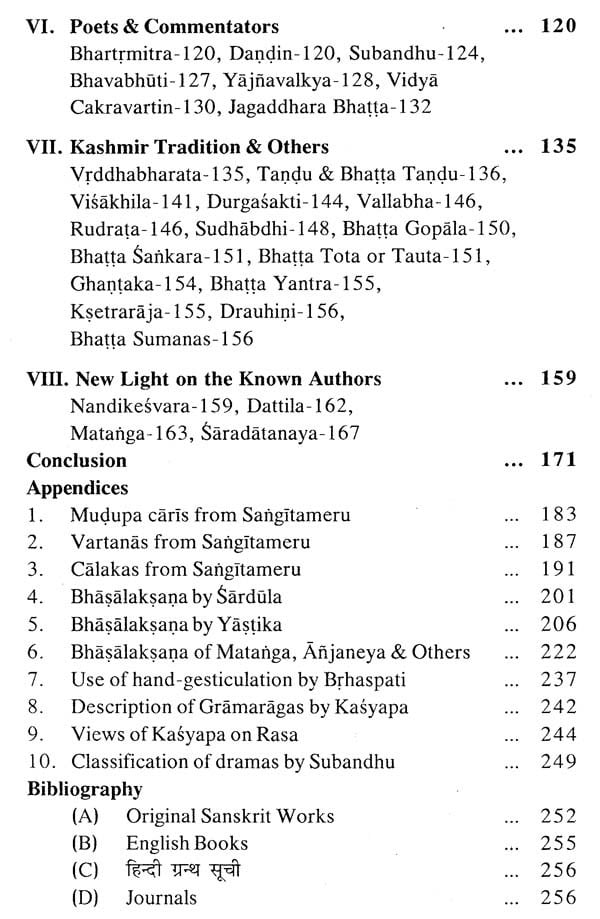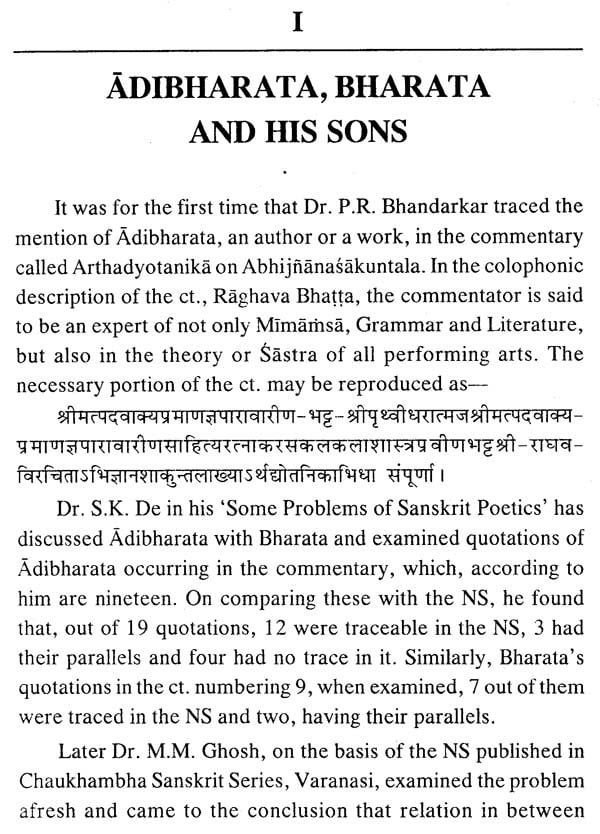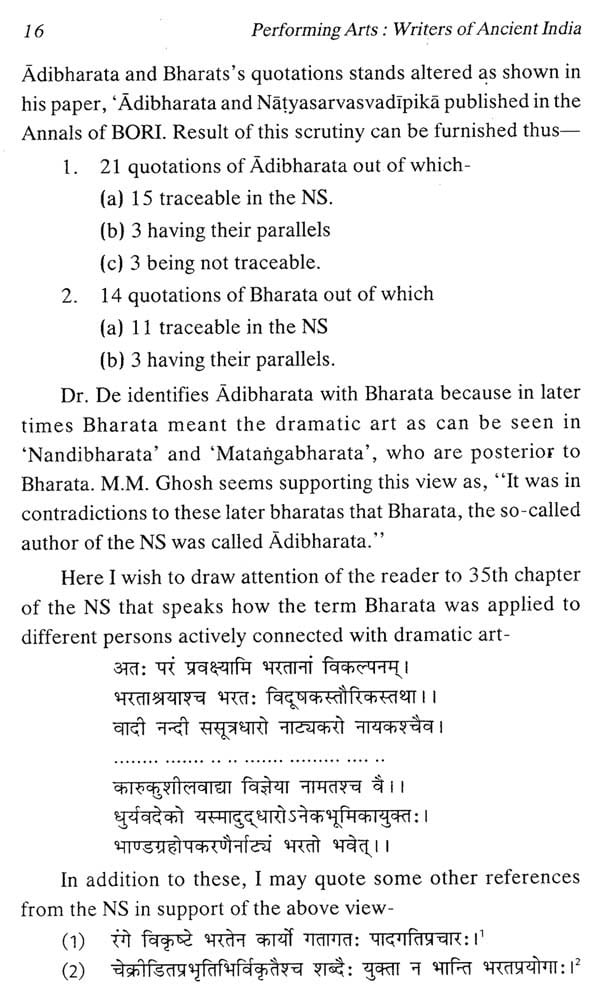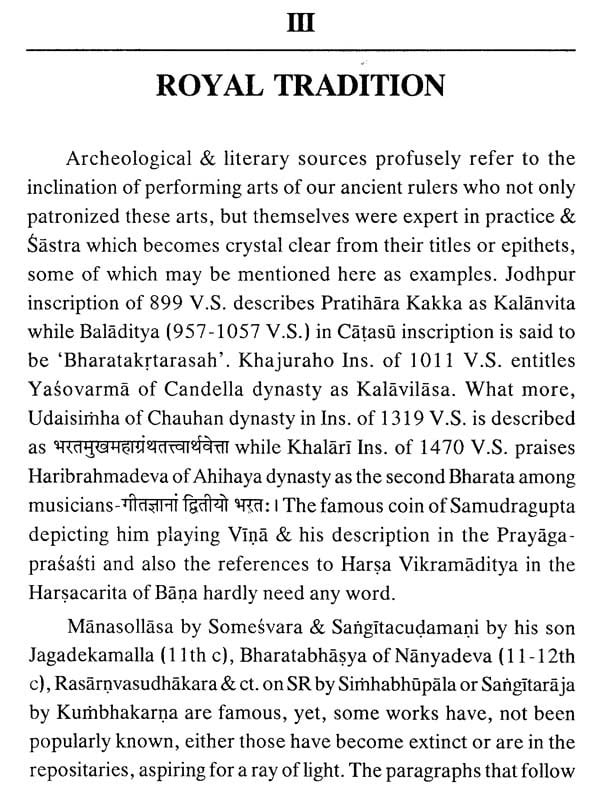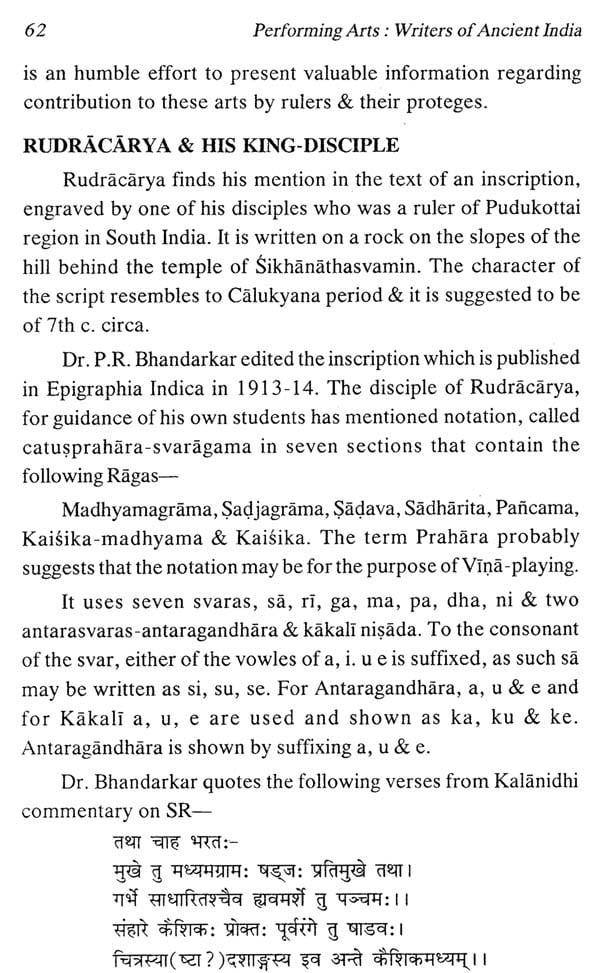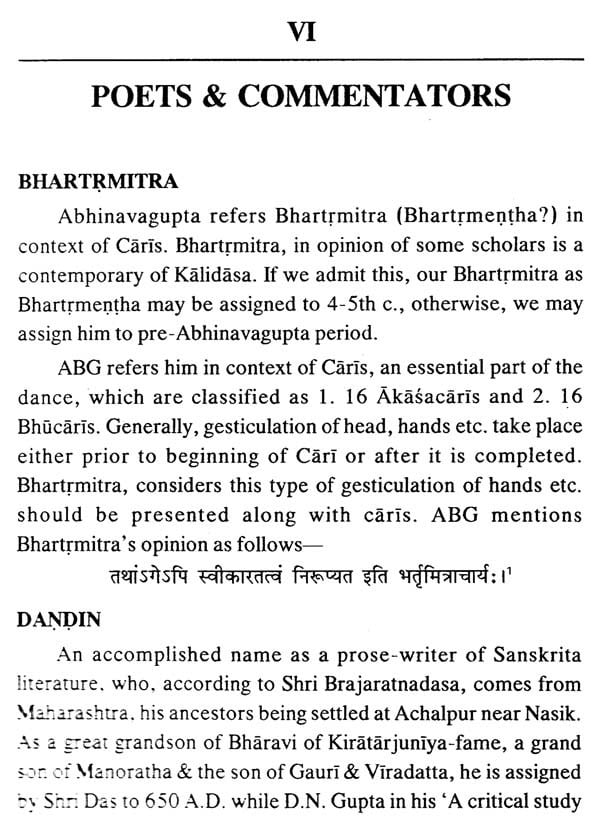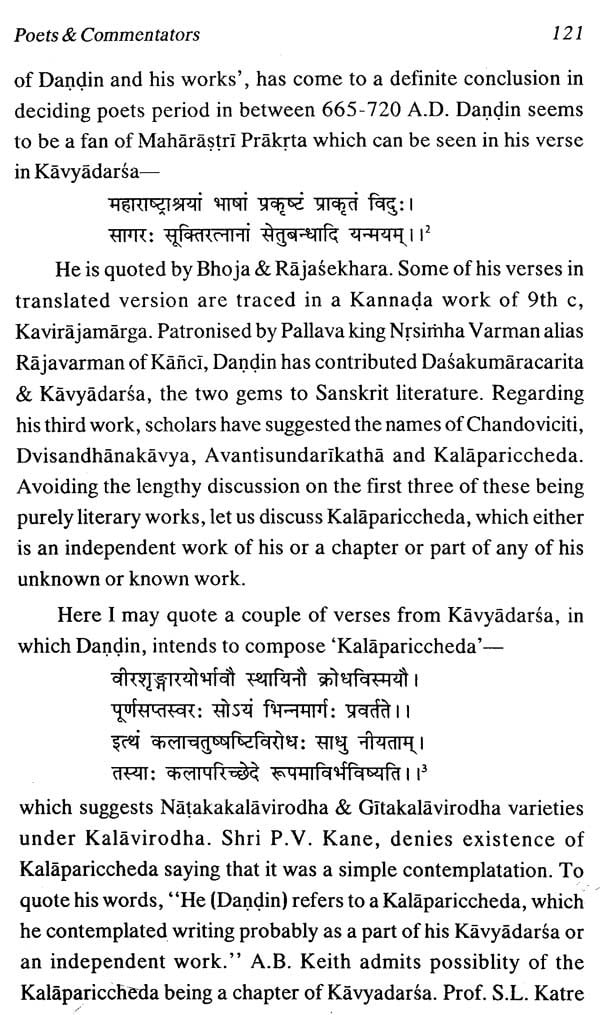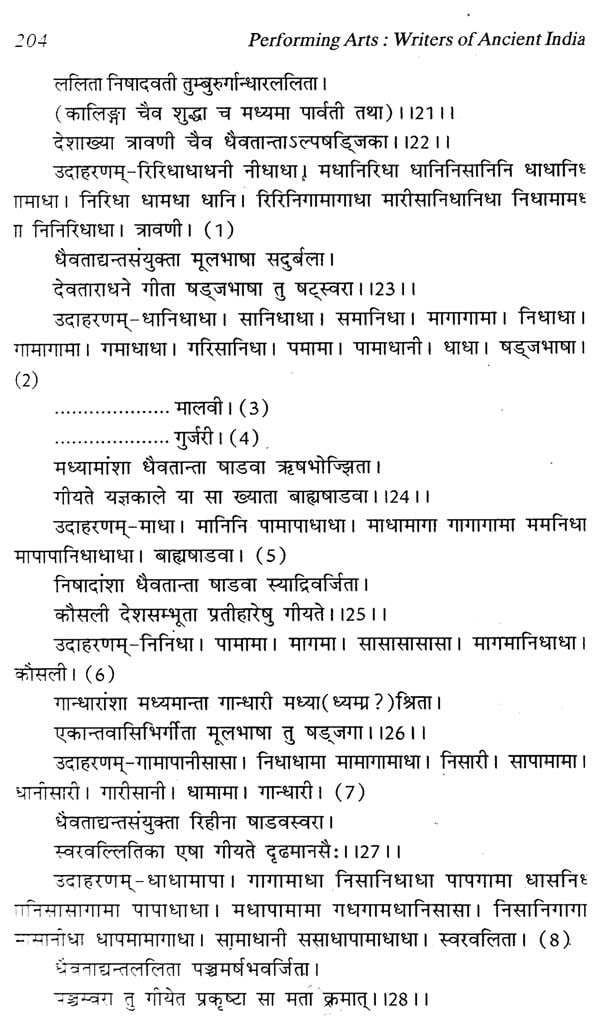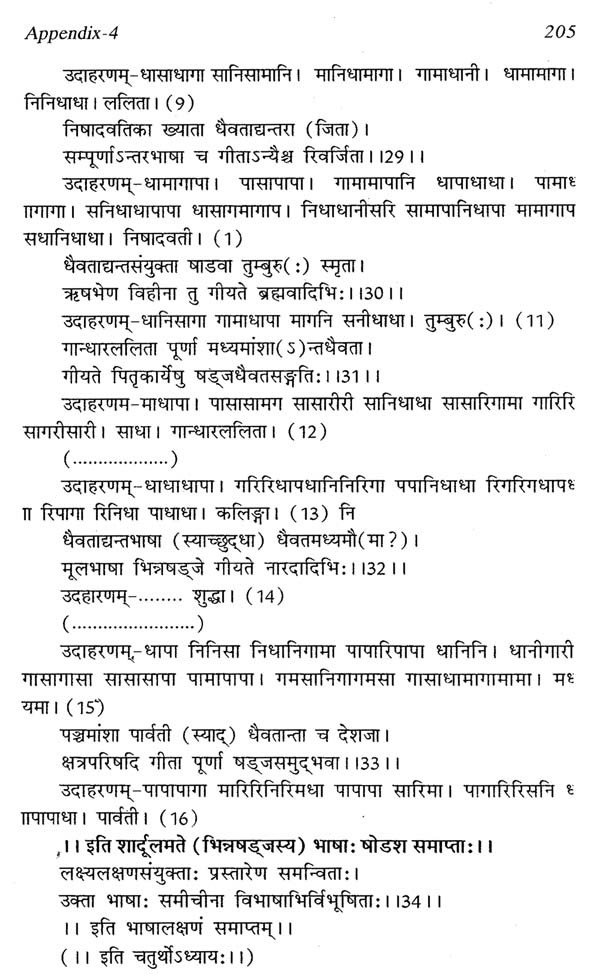
Performing Arts Writers of Ancient India
Book Specification
| Item Code: | TZZ992 |
| Author: | D.B. Kshirsagar |
| Publisher: | Maharaja Man Singh Pustak Prakash Research Centre |
| Language: | Sanskrit and English |
| Edition: | 2017 |
| ISBN: | 9789382311621 |
| Pages: | 256 |
| Cover: | HARDCOVER |
| Other Details | 9.00 X 6.00 inches |
| Weight | 420 gm |
Book Description
The present volume intends to discuss the views of those lesser known writers who can safely be assigned to a period in between 3rd c. BC & 13th c. AD and whose works are lost to us. Consequently the study has to be based on their citations/references occuring in the extant musicological and dramaturgical works, i.e. from Natyasastra of Bharatamuni to Sangitaraja of Maharana- Kumbhakarna of Rajasthan-Udaipur.
Prof. Chaitany Desai in his `Sangita-visayaka-sanskrta-grantha' has dealt with the famous writers like Bharata, Dattila & so on upto Nanyadeva & others. I prefer to avoid repetition & concentrate upon those lesser known writers who have been profusely referred or quoted in later musicological & dramaturgical literature and whose works are either unidentified or untraceable or deposited in ms. form but the place or repository thereof is left unnoticed by those who have discussed them in brief. The study includes those known works, the missing portions of which are quoted in later literature on performing arts and also aims to deal with well-known Sanskrit writers, from whose works or commentaries, it seems that they have contributed much to the writings on arts under view.
Thus, the writers discussed in the present study may further be classified among many categories, namely related to Purana & Agama, princess & their proteges, Jain & Buddhist sects, poets, prose-writers & commentators of Sanskrit literature and those who may be said to be historical figures & lastly the known authors like Nandikesvara, Dattila or Matanga, citations from whose works occur in later literature that are missing in their extant texts. Similarly the inclusion of known writers of Jain & Buddha tradition intends to highlight the awareness of the society, particularly of monks who claim to belong to non-Bharatan heritage on the basis that the canonical literature is supposed to be rewritten or recompiled about 4th c. B.C.
Here it needs to mention that my predecessors like Dr. V. Raghavan, K.C. Pande, M.N. Ghosh or P.R. Bhandarkar & others have discussed the writers quoted or referred by Abhivanagupta or mentioned in Sanskrit works or inscriptions. Neither I desire, nor deserve to rub my shoulders with my seniors, but most humbly wish to submit that the earlier discussions need to tamer the whole range of literature on performing arts and as such this study, ma. help in presenting changing concepts in performing arts that have always to follow the spectator or the audience.
Secondly, as this work covers the entire range of literature on arts upto 13th c. A.D., in a way it would be an addition to what is earlier discussed and feature those writers who could not find proper place in the studies attempted and provides an apportunity of revival of the concepts or views. Thus the purpose of the present study, in nut-shell, is to highlight difference of opinions or concepts among Acaryas, formation of Sampradayas resembling to modern 'gharana' -system, tracing works of these authors thrown into dark oblivion of time, original sources other than Bharatan tradition and enrichment of literature on performing arts which in future may enable to unfold what yet remains in dark.
I believe that the discussion of the views of about more than sixty lesser known writers on performing arts, indicating difference of opinions, changing concepts & rise or dissolution of different traditions, will help us in understanding that how these factors have enriched the process of development according to the expectations of the spectator or the audience as Bharatamuni proclaims - ‘Lokapramanamihesyate'.
I am indebted to all my predecessors & contemporary writers whose contribution to the Sastra of performing arts have proved of immense use in analysing or comparing the facts. In collecting source-material, the libraries of Oriental Institute, Baroda & Oriental Research Institute, Jodhpur have considerably helped me for which I am thankful. I also feel indebted to Shri Zahoor Khan Mehar, Ex-professor, History Department, J.N.V. University, Jodhpur, an erudite scholar of history and Rajasthani literature for his encouraging attitude for such persuits.
The above project was initially submitted to Mehrangarh Museum Trust, Jodhpur for financial assistance. H.H. Shri Gaj Singhji Saheb, Managing Trustee, was pleased to approve it with no delay. It is rather difficult for me to find appropriate words to record my thanks for this kind of consideration that has paved way of research for many scholars during last forty years.
My thanks are due to my friends, Dr. S.Y. Wakankar & Dr. S.K. Sharma for valuable suggestions, to Dr. Bhanwar Lal Suthar for keenness in computeri-sed setting & finally to the Maharaja Man Singh Pustak Prakash Research Centre for publication of this volume.
Whatever is worth appreciating in this volume, it's credit goes to my Gurus-Dr. Fateh Singh & Pdt. B.N. Kshirsagar. For the rest, I beg indulgence of the scholars.
**Content and Sample Pages**
